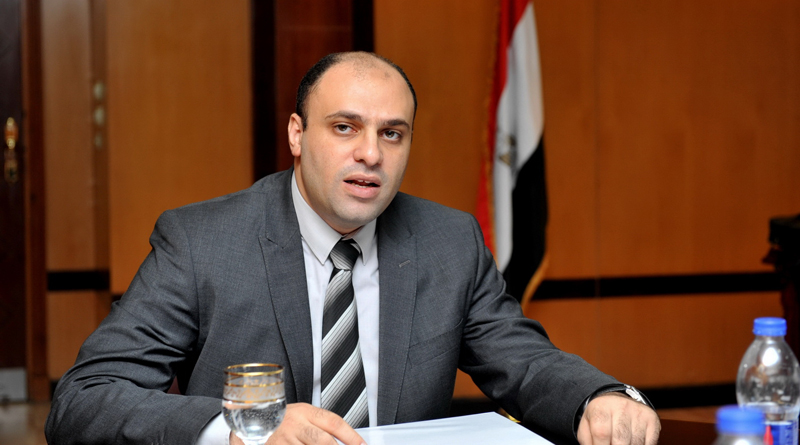by Ahmed El-Mahdi
The ministers of industry and investment called for the announcement of an industrial investment strategy that maintains attracting capital and the continued movement of production as the cabinet reshuffle kept Investment Minister Ashraf Salman, who created confusion recently because of his statements about the possibility of devaluating the Egyptian pound during the next phase as in the case of a number of world countries, mainly China. This has caused confusion in the foreign exchange market as well as the production wheel — as it relies heavily on importing raw material — in the industry and the investment community.
Head of the Gas Investors Association Dr. Mohamed Saad Eddin called on Investment Minister Salman in the government of Engineer Sherif Ismail to accelerate the application of the one-stop shop, which endeavors to eliminate the largest investment obstacles faced by investors, namely the multiplicity of bodies from where documents are issued.
Investors are looking for a body that resolves their disputes either with the government or individuals, including the need to activate the role of the Economic Court, he said, pointing out that it is unreasonable to consider an investment dispute as any other lawsuit that takes several years. The investor looks for justice and at the same time speed in governance.
He denounced reports on the short mandate of the new government which does not exceed three months, saying “the minister should work even if he presided over the ministry for only one day. There are no reports that the new cabinet has a specific timing as the efficient minister will complete his work after the parliamentary elections, which has been proven in keeping a number of ministers in the new cabinet formation. “
Chairman of the Federation of Egyptian Industries Eng. Mohamed El Sewedi and new Minister of Trade, Industry and Small and Medium-sized Enterprises Tariq Kabeel called for activating the small, medium and micro-sized industries system, pointing out that it should be a top priority for the government in order to activate Egyptian industry through having these projects as a 50-year usufruct and not ownership.
He emphasized the activation of laws that are ready for application, such as the food safety law and the law of the independence of the Federation of Industries so that it can play its role. He pointed out that the coming period requires more cooperation among all parties concerned in order to resolve Egyptian industry’s problems and bring it back on track as being the locomotive of development of the Egyptian economy.
Organizing the Egyptian money market has become a necessity, based on a study by the World Bank, he said, adding that it is also necessary to activate the law on product preference of the Egyptian industrial products in government contracts and international accords. It is also necessary to activate the safety specifications of Egyptian products and not the Egyptian standard specifications in cooperation with the Specifications and Quality Authority as a necessity to ensure the quality and safety of Egyptian products.
He underlined the importance of the demands of the Federation of Egyptian Industries to work on the establishment of Technical Education ratification bodies that include educational institutions, curricula and various elements of the educational process. It is necessary to work seriously to combat smuggling at customs ports and to draw up a guideline list of prices of goods and products on the Egyptian market.
Chairman of the Taxes Committee at the Federation of Egyptian Industries Mohamed El Bahei said it is time for the new Minister of Industry Kabeel to accelerate a number of files, including the law on companies which pertains to ways of establishing companies as the foreign investor seeks to know the terms and conditions. It is also necessary to accelerate the law on added value through discussions with the minister of finance.
He asserted that investors are still waiting for the law on safe market exit to assure that their projects will not be confiscated or nationalized and no corporal punishment will be imposed on people in business dealings. Egypt signed in 1940 an agreement to this effect, he said.
Head of the Young Businessmen of Industrial Cities of Small and Medium-sized Industries Association Alaa Al Sakti called on the new minister of industry to give attention to the private sector projects particularly that they represent 90 per cent of the registered projects during the next phase as the new cabinet did not include an independent ministry for small and medium industries.
Small and medium-sized industries need a clear and declared strategy to be implemented by any minister, whether the current minister of industry or the minister who heads the small and medium-size enterprises ministry which is likely to be formed following the election of the parliament.
Meantime, head of the Sohag Investors Association Mahmoud Al Shandaweely called on the government of Sherif Ismail to present a number of projects to establish a Nile marina to activate river transport, which is the least expensive among the different means of transport. The cost of preparing 1,000 kilometers in river transport amounts to EGP 600 million, while preparing the same distance in road transport and railway cargo costs EGP 3 billion and EGP 6 billion pounds, respectively, he added.
He added that river transport will provide 30 per cent of the consumption of petroleum products, which gives a competitive advantage to the prices of Upper Egypt products compared with the rest of products. The new government must modify the laws on labour and insurance, he said.


